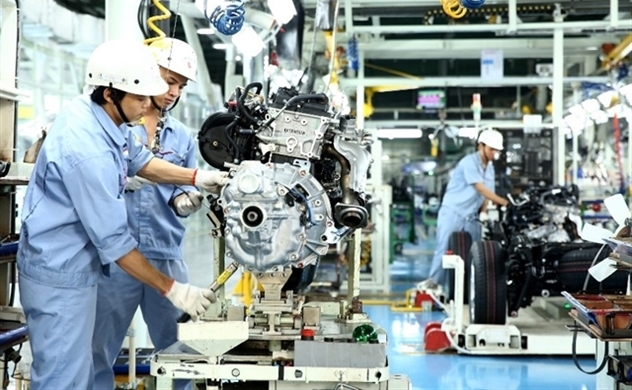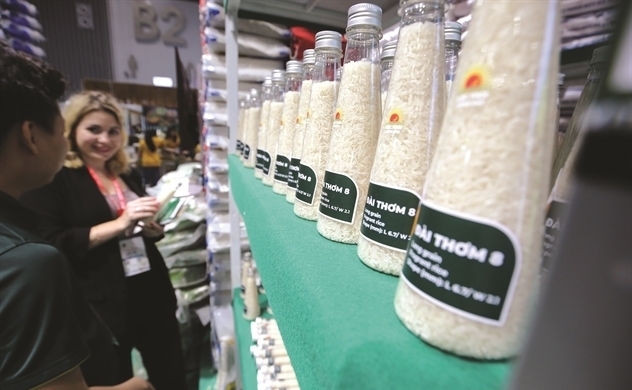Industrial production recovers but faces challenges.

National industrial production changed more positively with IIP growth of 2.2 per cent in May over the previous month. Photo by mpi.gov.vn.
The Index of Industrial Production (IIP) recovered in May, although rising input production costs are still hurting businesses, according to the General Statistics Office (GSO).
National industrial production increased by 2.2 percent in May over the previous month and 0.1 percent over the same period last year, stated Do Thi Ngoc, chief of GSO's Statistics Department.
In the initial months of 2023, the drop in export orders hurt domestic industrial production. Vietnam's first five months of IIP fell by 2%.
In the first five months, water supply, waste-water treatment, and management had the largest IIP rise of 6.4%. Electricity generation and distribution followed with 0.8%.
IIP fell 3.5 percent in mining and 2.5 percent in processing and manufacturing.
In the first five months, 49 places had IIP increase compared to previous year, while 14 localities saw a fall.
Gia Lai had the largest IIP rise, 21.7 percent. 18.6% IIP increase followed Tuyen Quang. Bac Giang (15.9%), Phu Tho (15.3%), Hai Phong (13.4%), Nam Dinh (13.3%), Kien Giang (13.1%), Phu Yen (12.3%), and Hau Giang (8.3%) had strong growth rates.
The GSO also noted that some vital industrial items had higher IIP in the first five months of 2023, including sugar (31.1%), gasoline (13.5%), man-made fiber clothing (10.6%), NPK fertilizer (9.2%), and TVs (7%).
At the same time, IIP growth decreased for autos (24%), bar and angle steel (20.1%), mobile phones (16.4%), textiles from natural fibers and phone components (10.1%), and casual wear (9.8%).
The agency also noted that the global economic crisis was harming domestic enterprises. Vietnam lost 88,000 companies in the first five months, rising 22.6 percent from the previous year. New businesses had 24.1 percent lower average registered capital.
In the setting that the economy and business community require capital to revive, core inflation in the first five months of 2023 climbed by 4.83 percent, higher than general inflation at 3.55 percent, making monetary policy management difficult, Ngoc said.
Thus, a proactive and flexible monetary policy must manage inflation and boost economic growth.
GSO recommends that the government implement solutions to maintain macroeconomic stability and proactive, flexible, and efficient monetary policy in coordination with fiscal and other macro policies to overcome the challenges and meet socio-economic development targets in 2023.
To help businesses recover and grow, policy and lending interest rates must be lowered and stabilized.
To help companies get cash for manufacturing and business, it should integrate monetary and fiscal policy.
To reduce imports, it must encourage home production and consumption, especially of domestic raw resources, and utilize domestic fuels.
The government should assess production and commercial activity to quickly address capital shortages, high raw material prices, and product consumption issues.
The state must implement measures to boost commerce, service, and tourism, develop and diversify export markets and goods, and maximize FTAs.
It also prioritizes accelerating public investment capital disbursement and socioeconomic recovery and growth.
Source: GSO, VNA

 TIẾNG VIỆT
TIẾNG VIỆT 










_131447820.png)







